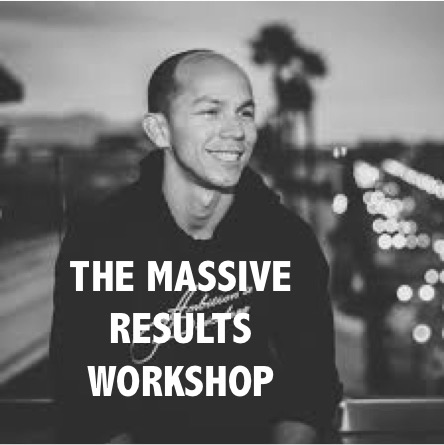The covid pandemic has compressed years of behavioural change and tech disruption into months. Whilst I’m no economist I am interested in the knock on effects from one part of the economy to another. As property entrepreneurs and investors we need to be aware of how wider influences can positively and negatively impact our businesses.
I read a great article in the business times last week with this very title – “The Great Coronavirus Acceleration” – and I thought this topic would open a worthwhile conversation inviting in different thoughts and experiences from property people around the UK.
Below I’ll summarise what I read on 5 key areas of industry and share a few thoughts on what I see as potential implications to property.
RETAIL
* Supermarket bosses say that consumers have finally started to embrace online grocery shopping after years of reluctance.
* Pre-covid, Tesco had initially planned to double its delivery capacity over about 4 years, their Chief Exec thought it would cost hundreds of millions and take 4 years to do that, but in reality it took them 5 weeks and cost £4m. Just shows what’s possible with necessity and urgency.
*e commerce platform Shopify (a platform that lets businesses set up online stores) has seen their share price triple and said online store creations in Britain have doubled this year so far.
*M&S chairman Archie Norman said, “Covid has driven a lot of people to shop online who previously wouldn’t have done. Part of that will never revert because people have become habituated to it”.
WHAT DOES THIS MEAN FOR PROPERTY BUSINESS?
* Naturally, the main losers have been retail workers and landlords of retail premises.
* Tens of thousands of retail staff have sadly lost their jobs. This is one among many sectors that have been hard hit. Wider sector awareness will likely lead to residential landlords seriously considering the line of work their tenants are in, especially the tenant buyers for Rent to Buy contracts.
*For commercial property investors, even though many high street retail premises will be coming available and looking cheap, you’ll want to be really clear on all your exits before investing ie do you have a solid tenant to move in? Can you convert the retail space into flats, or a different commercial use that is in demand in the area?
*With the huge growth in online shopping, if we think back up the supply chain, the physical goods we buy that aren’t on a high st/retail park shelf need to be kept instead on a warehouse shelf before being dispatched. Could you find a way to serve that market with a light industrial unit?
What further implications are you seeing/can you foresee due to the changing face of retail?
ENERGY
*Power and fuel demand dramatically decreased due to lockdown (ie no need for offices to operate and a lot less driving) and energy markets have dropped as a result.
WHAT DOES THIS MEAN FOR PROPERTY BUSINESS?
*With cheaper wholesale energy prices filtering down to benefit households have you looked at seeking out and locking in the best utility prices you can? For HMO landlords and SA operators you definitely want to do that.
*I just read today that BP are planning to sell their London HQ building for over £300m as it cuts 10,000 jobs and scales back office space in favour of a ‘hybrid work style mixing home and office.
*BP is among many big UK companies shifting work behaviour and downsizing office space. Savills predict that London office vacancies will be at the highest levels next year since the financial crisis.
BANKING
*”Banks are under pressure from record low interest rates and expected bad debts which are forcing them to earmark hefty provisions. More branch closures and job losses are expected.”
*More customers are moving to digital banking services and more online shopping means less use of cash > accelerate trend to digital payment and that will in turn increase the need for data security.
*During lockdown much of the lending market did the same with many mortgage products being removed from the market. Now each day is different with lending developments expected every month.
WHAT DOES THIS MEAN FOR PROPERTY BUSINESS?
*We will likely see more local bank branches come up for sale – Banks often occupy some stunning traditional buildings in town centres, the kind often favoured by the likes of Starbucks and Cafe Nero – however will the demand from these coffee tenants still be there due to lower high st footfall? Could former banks make great conversions to resi?
*In regards lending, that could be a whole post in itself – a couple of anecdotes from my own recent experience includes:
- There have been some super low rates if renewing a BTL mortgage with your existing lender however there are fewer products if looking to release some equity through a further advance.
- I’ve experienced a reduction in products for refinancing my student HMO showing that lenders have less appetite for that market now.
TRANSPORT
*Airlines have been devastated by the pandemic, [on the other hand electric car maker Tesla has thrived and Elon Musk has become the world’s 4th richest- not directly relevant but I included that for interest :)]
*Will travel companies survive? STA Travel folded recently and was the 11th travel agent to fail since the crisis began. Expert’s say even well established companies now face a fight for survival.
WHAT DOES THIS MEAN FOR PROPERTY BUSINESS?
*Again, residential landlords may be more hesitant about taking on tenants in the travel and airline sector.
*For SA Operators located near airports and previously benefiting from airline and overseas tourist trade, a pivot to find different guest profiles will be required.
*On the flip side, with the UK population not able to holiday abroad, holiday accommodation the length and breadth of the UK has been in more demand than ever this Aug and Sep. Will this increased UK staycation demand form part of your property plans?
EDUCATION
*When schools, colleges and universities closed, education providers were forced to move online at pace.
*Learning online is set to become a way of life – a professor at London Business School said, “The resistance wears away when it becomes a necessity and very quickly people realise how well it works.”
WHAT DOES THIS MEAN FOR PROPERTY BUSINESS?
*I felt the pinch with students ending leases at my Edinburgh flats early. Thankfully short term discounted rent attracted them back to rent for this new academic year. Will demand for student accommodation take a big hit in university towns? What are you experiencing in your areas?
*What about your property education? In person training events and courses have quickly pivoted to online delivery, how do you feel about online learning vs in person? The mastermind programme we deliver at Touchstone is fantastic (IMHO)- it’s great that we can continue to make a positive impact on people investing in themselves from the comfort of their homes. Property education and online mentoring will grow even more rapidly now I reckon.
YOUR TURN
I hope that’s been insightful. I’d love to read some thoughts on threats and opportunities for property businesses based on what you’re reading, seeing and hearing.
Image credit: Sunday Times




